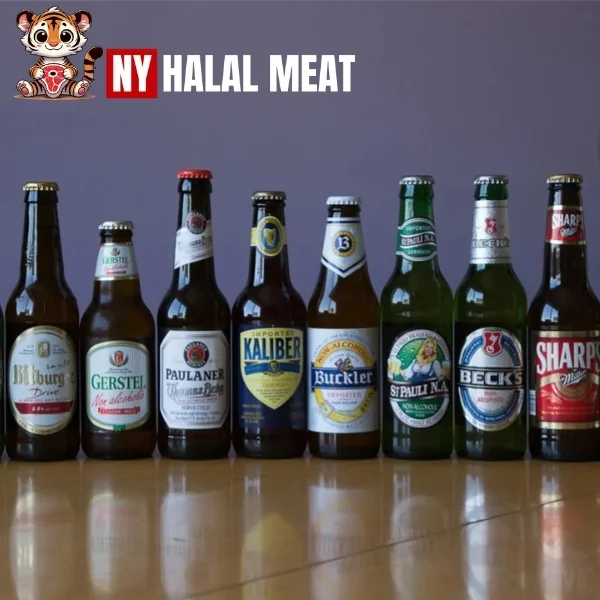Are Non-Alcoholic Beers Allowed In Islam?
In this article, we will analyze if non-alcoholic beers are permissible, what to examine before making this verdict, and general understanding Muslims should have about non-alcoholic beers.
Which Ingredients Allow You To Consider A Drink Halal
Gaining context on which ingredients are considered halal in Islam would be useful before exploring the particular topic of non-alcoholic beers. Some of the elements which allow a drink to be considered halal include:
- Alcohol Free: Within the religion of Islam, any type of beverage that has alcohol present automatically becomes haram or forbidden. This is one of the initial factors that ought to be taken into account when assessing whether a drink adheres to the halal standards.
- No intoxicating substances: Halal beverages must be free from any ingredients that can cause intoxication or be harmful to the human body.
- Adequate Production and Maintenance: Halal drinks should never be produced if they have any contact with haram materials, including haram ingredients.
- Pure Ingredients: The raw material for the beverage should be fit for consumption as per Islamic law, such as claiming it should not have banned meat products such as pork and other parts derived from it.
What Are Non-Alcoholic Beers?
Non-Alcoholic Beer is made to mimic the taste and aspect of regular beer without the intoxicating effects, so the drinker does not get tipsy. There are beers marketed as ‘Non-Alcoholic’ with ABV that is equal to or lower than 0.5%, but that is not very common, and most beers are made with a higher ABV.
Main ingredients of these non-alcoholic drinks do not vary from that of regular beer which consists of water, barley, hops, and yeast. The major difference is the reduction or removal of alcohol content from the product such that it caters to customers who like beer but dislike the effects of alcohol.
Do Non-Alcoholic Beers Come Under the Halal Certification?

There are a number of conditions that you need to take into consideration in order to determine whether non-alcoholic beer comes under the umbrella of halal or not, such as the type of production, how alcohol was distilled out, and the product’s overall context. Let’s address these factors.
1. Alcohol Content
The issue that most often arises in relation to non-alcoholic beverages is related to its alcohol level: since such drinks are purportedly designed to have little or none at all. However, Islam generally prohibits any form of beverage that seems to have even a trace level of alcohol, while some advocates suggest that the level of alcohol present does not seem to be sufficient in quantity to be intoxicating. Other parties may feel that the matter in contention is de minimus, since certain Muslim women would still prefer to have non-alcoholic beer even if it has an alcohol volume of 0.5%, so long as it is contained within a moderation level that is not likely to induce intoxication. This becomes more problematic in places where a significant number of Muslim women complain, as it becomes a significant grey area.
2. Intoxicating Effects
Since non-alcoholic beer is not aimed at intoxication, most types do not contain sufficient levels of alcohol to produce such an effect. However, this may cause some concerns since some Islamic scholars advocate non-alcoholic beverages to be prohibited due to their even tiny traces of alcohol, thereby making some Muslim women feel uncomfortable consuming non-alcoholic beverages. My view is not so strict since as long as alcohol does not act as a non-religious leader, they are comfortable taking the non-alcoholic version.
3. Additives and Ingredients
Another consideration is the use of the constituents in the manufacture of non-alcoholic beer. This is especially so because the main constituents of water, barley, hops, and yeast are normally halal. Many flavorings, preservatives, or emulsifiers that might be added to enhance the taste of non-alcoholic varieties, as is the case with some malt-based drinks, may not be halal. Therefore, non-alcoholic beer should be confirmed as halal by checking the presence of potentially harmful chemicals on the product label.
4. Cross-Contamination
Sometimes, non-alcoholic beers are brewed with other beers that might contain alcohol. This brings in the issue of cross-contamination whereby alcohol from regular beer may get into the non-alcoholic beer. Even though the alcohol content in non-alcoholic varieties of beer is considered low, this cross-contamination is likely to lower the confidence of the user that the non-alcoholic beverage is free from alcohol.


